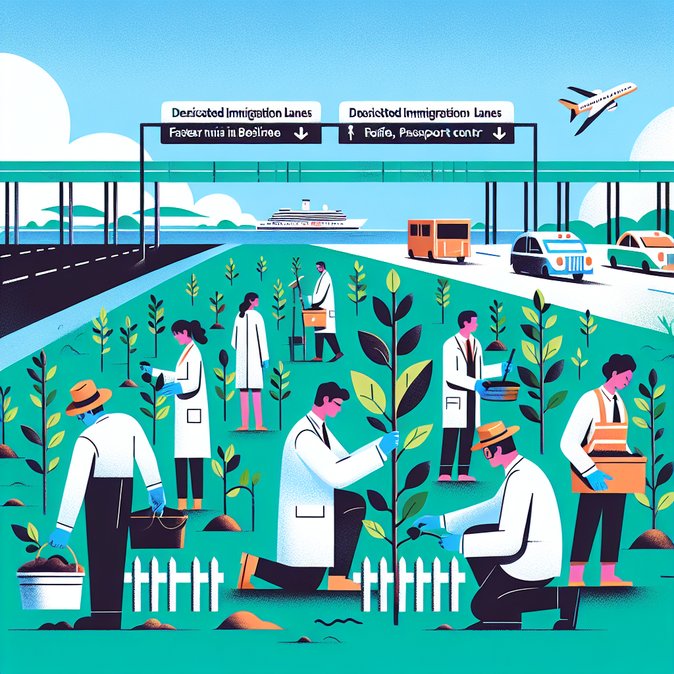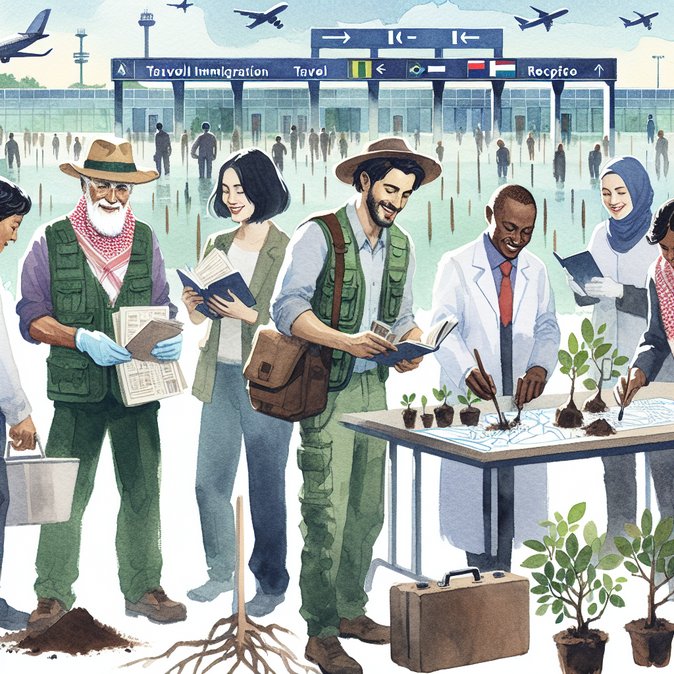
In a joint declaration issued on 4 November 2025, the governments of Pará, Pernambuco and Sergipe, together with the city of Aracaju, formally endorsed the global "Mangrove Breakthrough" initiative ahead of COP30. While the announcement is principally environmental, it carries notable mobility implications: signatories committed to fast-tracking visas and internal travel permits for scientists and restoration workers visiting mangrove sites.
What the breakthrough is – Launched at the UN Ocean Conference, the initiative seeks to mobilise US$ 4 billion to restore 15 million hectares of mangroves by 2030. Brazil’s federal government endorsed the plan in June, but sub-national buy-in unlocks local authority over field-work access and simplifies the issuance of research visas.
![Brazilian states endorse ‘Mangrove Breakthrough’, unlocking easier entry for COP30 side-events]()
Mobility facilitation – Under the new protocol, foreign researchers registered with the Environment Ministry will benefit from a same-day "green corridor" visa extension, allowing them to travel beyond their original port of entry without additional police registration. Coastal airports in Belém and Recife will open dedicated immigration lanes for COP30 mangrove-programme participants between 8 and 30 November 2025.
Corporate relevance – Energy, insurance and ESG-consultancy firms sponsoring mangrove-offset projects can now dispatch audit teams more easily, reducing compliance lead-time from four weeks to five days. Travel-risk managers should update destination guides to incorporate new permit procedures and health-and-safety briefings for remote estuarine areas.
Next steps – Bloomberg Philanthropies, co-host of the COP30 Local Leaders Forum, will publish a toolkit on 12 November detailing the visa-support documentation required to access the "green corridor."
What the breakthrough is – Launched at the UN Ocean Conference, the initiative seeks to mobilise US$ 4 billion to restore 15 million hectares of mangroves by 2030. Brazil’s federal government endorsed the plan in June, but sub-national buy-in unlocks local authority over field-work access and simplifies the issuance of research visas.

Mobility facilitation – Under the new protocol, foreign researchers registered with the Environment Ministry will benefit from a same-day "green corridor" visa extension, allowing them to travel beyond their original port of entry without additional police registration. Coastal airports in Belém and Recife will open dedicated immigration lanes for COP30 mangrove-programme participants between 8 and 30 November 2025.
Corporate relevance – Energy, insurance and ESG-consultancy firms sponsoring mangrove-offset projects can now dispatch audit teams more easily, reducing compliance lead-time from four weeks to five days. Travel-risk managers should update destination guides to incorporate new permit procedures and health-and-safety briefings for remote estuarine areas.
Next steps – Bloomberg Philanthropies, co-host of the COP30 Local Leaders Forum, will publish a toolkit on 12 November detailing the visa-support documentation required to access the "green corridor."









